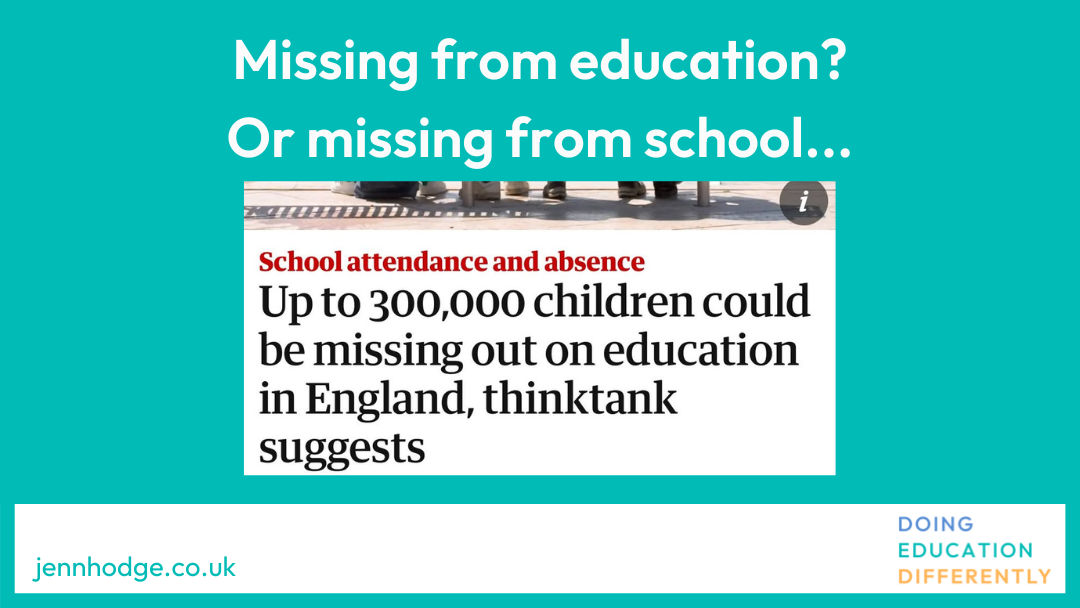Missing from Education? Or missing from school…
Language is powerful and either this journalist is very ignorant or going for a sensationalist headline – both are a disappointment and making me question my subscription.
There is no ability for a 9 year old to spend a week straight taking apart machinery and figuring out how it goes back together again, with some improvements along the way.
A 15yr old cannot opt to spend a full day painting and exploring texture colour and shape from the peace of their garden in the summer.
In school a future chef at 7yrs old cannot just nip to the shops with a trusted adult, having read the ingredients from a recipe and then make soup and bread – followed by an engaging role play with kitchen utensils, sand, a tray of oats and a range of dolls as the unassuming guests in her ‘restaurant’. All before an afternoon in her favourite park.
All education. All learning. None at school.
Now let’s talk about needs.
We all have needs. We all learn best in certain ways and we all have a favoured environment to work in. Some of us like a bustling office with a feeling of connection and team, some a quiet office with chats in the coffee room and some in a home office with just a cat for company.
Many of us want to be outside, working at heights, or on the ground, tending the earth or perhaps with animals. Some prefer a laboratory, some need to be on the move and others want to care and nurture.
So many ways, so many needs, so many people.
Learning is the same. This is why school simply doesn’t (and cannot) meet all needs.
Whilst this was accepted back in the 80’s – it isn’t now. Parents arn’t willing for their kids to come home feeling ‘stupid’ or having been threatened or punished for not being able to sit still.
Society is not what it was 5 years ago – let alone 25.
So, Richard Adams, Education Editor. How about you get yourself an education.
Home Education rates are up 60% because schools are quickly becoming outmoded, they are working for a rapidly decreasing number of young people and one day, a whole load of teens will simply stand up and refuse to dress the same, look the same, act the same and be moulded into something that prepares them for a world that ceased to exist decades ago.
It’s about time we stopped forcing young people into a broken system and instead looked at the people doing things differently (home educators and alternative provisions) to find inspiration for what community learning of the future could look like.
It staes in the article that 300’000 is inaccurate for lots of reasons and I feel the headline is simply being used to cause panic and back a home ed register.
But if we are talking about “missing out on education” then we need to step back and consider the priority – which is the 100’s of 1000’s of young people in school who are not getting a suitable education either due to their learning, safety or emotional needs not being met.
Whilst I absolutely recognise that there will be children who fall “through the net” – as far as safeguarding goes, that also sadly happens with young people are in school.

